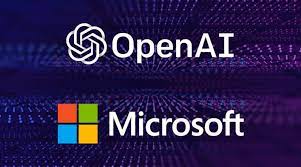Elon Musk has escalated his legal battle against OpenAI, the artificial intelligence company he co-founded, and its largest financial backer, Microsoft. In an amended lawsuit filed in Oakland, California, Musk accuses the two tech giants of monopolizing the generative AI market and sidelining competitors through antitrust violations.
Allegations of Unfair Competition
The lawsuit claims that Microsoft and OpenAI engaged in anticompetitive practices, including exclusive licensing deals that restricted rival companies from gaining a foothold in the AI sector. Musk’s legal team argues that these actions constitute a merger in disguise, carried out without proper regulatory approvals.
“Microsoft and OpenAI have crossed the line by stifling competition and prioritizing profits over innovation,” said Musk’s attorney, Marc Toberoff. “The public deserves transparency in these dealings.”
The suit seeks to void OpenAI’s exclusive licensing agreement with Microsoft and demands the forfeiture of profits Musk claims were gained through unfair practices.
Criticism of OpenAI’s Shift to For-Profit
Musk’s legal challenge highlights his dissatisfaction with OpenAI’s transformation from a nonprofit organization into a $157 billion for-profit entity. He argues that this shift betrayed the organization’s original mission to prioritize public benefit over corporate gain.
“Never before has a corporation gone from tax-exempt charity to a $157bn for-profit, market-paralyzing gorgon – and in just eight years,” Musk’s complaint states.
A Political Dimension
The case arrives as Musk gains prominence in U.S. politics, joining Donald Trump’s incoming administration in a role aimed at curbing government waste. Musk’s growing political influence and donations to Trump’s campaign have drawn attention to the lawsuit’s potential implications beyond the courtroom.
Some observers suggest Musk’s legal maneuvers reflect an attempt to reassert his influence in the AI industry, where he has clashed with OpenAI’s leadership since leaving the organization in 2018.
Tech Titans Respond
OpenAI has dismissed Musk’s allegations as baseless, labeling the amended lawsuit “even more overreaching” than the original complaint filed in August.
Microsoft, while refraining from direct comment, has faced similar accusations in the past over its business practices in various tech sectors.
OpenAI further alleges that Musk’s lawsuit is part of a broader campaign to undermine the company for his own competitive advantage, describing it as a “calculated effort to harass OpenAI.”
Implications for the Future of AI
The outcome of the lawsuit could reshape the AI industry, potentially increasing regulatory scrutiny over exclusive partnerships and business practices among tech giants. A decision in Musk’s favor might open doors for smaller players and create a more competitive landscape in the generative AI market.
For Musk, this legal battle is about more than just corporate accountability. It reflects his broader vision for AI as a tool for societal benefit, free from the dominance of a select few companies. As the legal fight intensifies, it highlights the growing tension between innovation, competition, and ethics in the rapidly evolving world of artificial intelligence.
